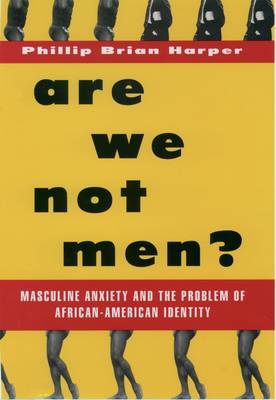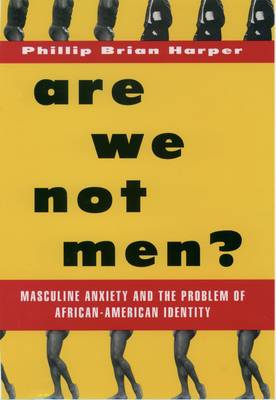
- Retrait en 2 heures
- Assortiment impressionnant
- Paiement sécurisé
- Toujours un magasin près de chez vous
- Retrait gratuit dans votre magasin Club
- 7.000.0000 titres dans notre catalogue
- Payer en toute sécurité
- Toujours un magasin près de chez vous
Are We Not Men?
Masculine Anxiety and the Problem of African-American Identity
Phillip Brian Harper
Livre broché | Anglais
186,95 €
+ 373 points
Description
In 1995, popular anxieties about black masculinity became evident in public reactions to the conclusion of the OJ Simpson trial and the Million Man March on Washington. The nation's divided response to the OJ verdict, together with the controversy surrounding Louis Farrakhan's call to black men to come together for a "day of atonement" brought issues of race and gender to the forefront of national debate.
In his timely and incisive book Are We Not Men?, Phillip Brian Harper explores issues of race and representation and shows that ideas about black masculinity have always played a troubled role both in the formation of African-American identity and in the mass media at large.
Spécifications
Parties prenantes
- Auteur(s) :
- Editeur:
Contenu
- Nombre de pages :
- 272
- Langue:
- Anglais
Caractéristiques
- EAN:
- 9780195126549
- Date de parution :
- 22-10-98
- Format:
- Livre broché
- Format numérique:
- Trade paperback (VS)
- Dimensions :
- 154 mm x 232 mm
- Poids :
- 385 g

Seulement chez Librairie Club
+ 373 points sur votre carte client de Librairie Club
Les avis
Nous publions uniquement les avis qui respectent les conditions requises. Consultez nos conditions pour les avis.







